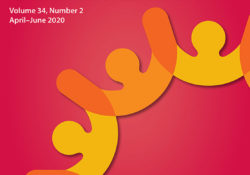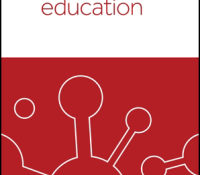eric.ed.gov har udgivet: In 2011-2012, the Georgia legislature funded a series of ongoing studies to evaluate Georgia’s Pre-K Program. The 2016-2017 Georgia’s Pre-K Program Evaluation focuses on the results of the fourth year of this longitudinal study, through second grade. The purpose of the current evaluation study was to examine longitudinal outcomes for children related to key academic and social skills as well as the quality of their classrooms from pre-k through second grade. The primary evaluation questions included: (1) What are the learning outcomes through second grade for children who attended Georgia’s Pre-K Program?; (2) What factors predict better learning outcomes for children?; and (3) What is the quality of children’s instructional experiences from pre-k through second grade? To address these questions, the evaluation study included a sample of… Continue Reading →
Like this:
Like Loading...
eric.ed.gov har udgivet: In 2011-2012, the Georgia legislature funded a series of ongoing studies to evaluate Georgia’s Pre-K Program. The 2016-2017 Georgia’s Pre-K Program Evaluation focuses on the results of the fourth year of this longitudinal study, through second grade. The purpose of the current evaluation study was to examine longitudinal outcomes for children related to key academic and social skills as well as the quality of their classrooms from pre-k through second grade. The primary evaluation questions included: (1) What are the learning outcomes through second grade for children who attended Georgia’s Pre-K Program?; (2) What factors predict better learning outcomes for children?; and (3) What is the quality of children’s instructional experiences from pre-k through second grade? To address these questions, the evaluation study included a sample of… Continue Reading →
Like this:
Like Loading...
tandfonline.com har udgivet en rapport under søgningen “Teacher Education Mathematics”: Abstract Abstract In a previous study, we examined hair cortisol concentrations (HCCs) in children when first entering elementary school (at 4 years). In this follow-up study, we examined their HCC when they entered third grade (at 6 years), where the more playful first grades proceed into a more formal learning setting. Participants were 30 6-year-old children (14 boys). Hair samples (≥5 cm) were collected 2 months after the summer holidays. Hair analysis was conducted using two 2-cm long segments, reflecting the first 2 months of school attendance in grade 3 (the scalp-near segment), and 2 months prior to the start in grade 3. Between these two sections, we left a gap of 1 cm to avoid overlap of periods (due to differences in hair… Continue Reading →
Like this:
Like Loading...
eric.ed.gov har udgivet: As governors respond to the need to significantly improve the quality of public education, they should consider incorporating stronger actions to improve mathematics instruction as part of their overall reform agenda. Governors can take the following actions to promote high-quality mathematics instruction for young children: (1) Become a champion for improvements in the quality of early math education with legislators, business leaders, educators, parents, and students; (2) Align high-quality mathematics standards through the educational pipeline, and support appropriate use of student assessments to measure results. State leaders could consider raising standards for the math skills and concepts children should learn in their state’s early learning guidelines; and (3) Promote changes in policies that improve educator preparation and that support their capacity to teach mathematics to young children.… Continue Reading →
Like this:
Like Loading...

tandfonline.com har udgivet en rapport under søgningen “Teacher Education Mathematics”: ABSTRACT ABSTRACT Research on the screen time of young children and its relationship to their cognitive and social development is controversial. Based on a stratified, random sample of 579 five-year-old children in Guangdong, China, this study explores the relationship between the screen time of Chinese children and their cognitive and social development. Specifically, we assessed children’s receptive vocabulary, math skills, executive functioning, science knowledge, and social skills in relationship to their active and passive screen times. Results indicate that the passive screen time of Chinese preschool children was negatively associated with their mathematics achievement, science performance, executive functioning, and social skills. Active screen time was positively associated with their receptive language skills and science knowledge. Additionally, the screen time of… Continue Reading →
Like this:
Like Loading...
tandfonline.com har udgivet en rapport under søgningen “Teacher Education Mathematics”: Link til kilde
Like this:
Like Loading...
eric.ed.gov har udgivet: This the executive summary of the 2013-2014 study which provided the baseline year for the longitudinal study. The study included observations of teaching practices in a random sample of 199 Georgia’s Pre-K classrooms and assessments of the language, literacy, math, general knowledge, and behavior skills of a sample of 1,169 children attending these classrooms, including parallel assessments in English and Spanish of 139 dual-language learners (DLLs). Classroom/teacher characteristics were examined as predictors of the quality of classroom practices, while both classroom quality as well as child/family and classroom/teacher characteristics were examined as moderators of children’s growth in skills. [To view the full report, see ED593274.] Link til kilde
Like this:
Like Loading...
eric.ed.gov har udgivet: Massachusetts is one of a handful of states that is often recognized as a leader in public education, and for good reason. The Commonwealth consistently outperforms most states on national reading and math tests and often leads the pack in education innovations. “Starting Young: Massachusetts Birth-3rd Grade Policies that Support Children’s Literacy Development,” a report from the Early & Elementary Education Policy team at New America, examines state policies and local initiatives that aim to give children a strong start and offers recommendations to help ensure more students are moving up the learning staircase. Massachusetts has taken important steps, but to have a larger sustainable impact on children’s literacy development, more is needed. The report also provides a list of interviews and notes. Link til kilde
Like this:
Like Loading...

tandfonline.com har udgivet en rapport under søgningen “Teacher Education Mathematics”: Abstract Abstract This exploratory mixed-methods study set out to explore Maltese primary school teachers’ perceived barriers to, and enablers for, the integration of children’s literature in mathematics teaching. Data were collected by means of an online questionnaire and semi-structured interviews, and analysed thematically using Ajzen’s Theory of Planned Behaviour. The responses given by the participants showed that integration of mathematics and stories was not a common practice. The perceived barriers were categorised as Resource Constraint, Time Constraint, Lack of Pedagogical Knowledge and Confidence, Doubts about Outcome Expectancy, and Inhibiting Social Norms while the three perceived enablers identified were Pedagogical Benefits, Love of Stories, and Enabling Social Norms. Given that the majority of the participating teachers acknowledged the potential benefits of… Continue Reading →
Like this:
Like Loading...
eric.ed.gov har udgivet: Reading is one of the disciplines that can be meaningful in integrating mathematics and science. One way to consider the connection between children’s literature and mathematics is to consider how fictional literature might influence a child’s thinking about the issues that are involved in the scientific enterprises. This document presents resources related to that issue in three sections. The first section answers the question of how to find information on children’s literature and lists some resources. The second section presents and explains teacher resource materials for using children’s literature in mathematics and science separately. Finally, the third section lists and summarizes children’s literature books for mathematics and science. (ASK) Link til kilde
Like this:
Like Loading...



